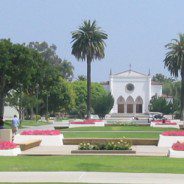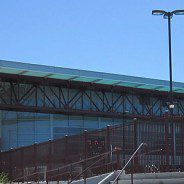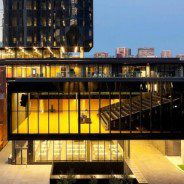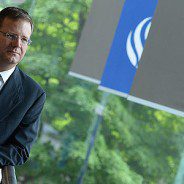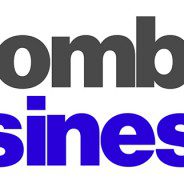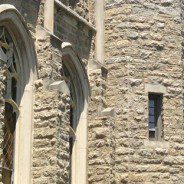Search results for :
#ICYMI: MetroMBA Trends – 12.19.2015
Welcome back to our weekly series, #ICYMI: MetroMBA Trends, where we round up the hottest posts from the past week (in case you missed them). So, without further ado, here are the top five posts: Continue reading…
Jindal EMBA Alumni Create Endowed Professorship
Two graduates of the executive MBA (EMBA) program at the University of Texas-Dallas’ Naveen Jindal School of Management (JSM) have established an endowed professorship in honor of former professor John F. McCracken.
An In-Depth Look at the Forté Foundation for Women MBAs
According to Catalyst.org, women make up only 36.5 percent of MBAs earned in the United States. Even worse, a landmark study by the University of Michigan Business School revealed that women make up less than 17 percent of corporate board members in America’s 500 largest companies. The Forté Foundation is working to change those numbers. It’s a non-profit consortium dedicated to launching women into fulfilling, significant careers through access to business education, opportunities and a community of successful women leaders. Continue reading…
Rady Offers a Holiday Gift Guide with Products from Students & Alum
UC San Diego Rady School of Management students and alum dominate the holiday gift industry. A quick look at the Rady website reveals a holiday gift guide filled with products that are Rady-made. A mix of tech, treats, and services, these products are a testament to the school’s innovative and career-focused education. Continue reading…
Leadership Executive MBA
Seattle University Leadership Executive MBA Program Structure
The Seattle University Leadership Executive MBA (LEMBA) at Albers School of Business and Economics is 22 months/six quarters (two academic years). Executive Education programs begin once a year in late August that is aimed at mid- to senior-level professionals. Classes meet for a long weekend once a month, typically 8 a.m.-5:30 p.m., Thursday to Saturday.
Curriculum
Thoughtfully designed with courses grouped into five broad themes, our the Albers EMBA curriculum focuses on expanding your perspective through multidisciplinary and multi-industry exposure, as well as through coursework, reflection, rigorous application, and dedicated one-on-one executive coaching.
The Leadership Executive MBA (LEMBA) begins with the Executive Leadership Certificate (ELP) program, a two-quarter deep dive into leadership. Following the ELP, you’ll continue to refine your leadership outlook and skills as you move into the business curriculum for the remaining four quarters of the program.
First year EMBA courses focus on accounting, economics, data analytics and statistics, adaptive leadership and vision, team building, leading responsible organizations, ethics, negotiations, the role of business in the community, communications, and executive coaching.
Second year EMBA courses explore the connections between operations, strategy, and execution. Courses topics include global strategy, strategic marketing, economics of the firm, financial strategy and management, organizational performance and change management, and the role information and communications technology plays in enabling new ways of doing business. Finally, to demonstrate the skills you have acquired, each student designs and implements a strategic, executive project that integrates the two years of learning.
Curriculum Overview
The five overarching themes driving the design of our curriculum mirror the responsibilities and challenges business professionals will face in the course of their careers: leadership, effectiveness, strategic thinking, execution, and impact. Courses covering these topics are delivered over a 6-quarter period (two academic years).
Executive MBA Rankings
• U.S. News & World Report: 16th
Class Profile
Students in the Seattle University Leadership Executive MBA program are, on average, 46-years old, and had 20 years of previous work experience, and 15 years of managerial experience. These students enrolled with an average GMAT of 660 and GPA of 3.35. About 42 percent of students are female.
Tuition, Scholarships, and Financial Aid
The 20-month Leadership Executive MBA (LEMBA) takes place over six quarters (two academic years). Tuition for the 2020 incoming class The tuition cost for the Albers Leadership Executive MBA is $17,000 per quarter and is billed in six quarterly installments, totaling roughly $102,000.
This cost includes tuition, fees, textbooks and course materials, meals and lodging at residential sessions, continental breakfasts and lunches on class days, and food and refreshments at various hosted events. On-campus parking and graduation regalia are not included in tuition.
Students in the Seattle University Leadership Executive MBA Program can apply for Federal Stafford Direct Loans or Graduate Plus Loans. The University also awards several LEMBA scholarships to support leaders whose professional experience reflects their commitment to one or more of the following areas: Academic Excellence, Service and Leadership, Community, and Global Engagement. Awards are dispersed equally across the six quarters of the LEMBA program.
NEW FOR FALL 2020: THE HAGEN SCHOLARSHIP
The University is pleased to announce additional scholarship support for LEMBA students. Candidates for the program that submit applications for the Early Decision deadline December 1 or the second application deadline March 1 are eligible for up to $30,000 in scholarship support.
Admissions
In addition to the Application for Graduate Admission and a $55 nonrefundable fee (waived for Seattle University alumni). In addition the following are required for admissions:
- Four-year undergraduate or baccalaureate degree from a regionally-accredited institution or U.S. equivalent. Exceptions considered on an individual basis by the dean.
- Official transcripts from all post-secondary educational institutions attended, including graduate programs. Transcripts from international institutions (including Canada) may require additional evaluation; see your recruiter for more information.
- At least ten years of progressively responsible professional work experience, seven of which should be managerial in nature but can include management of people, products, programs, or projects is required.
- Two recommendations from current or former supervisors using online evaluation forms supplied to recommenders by the university. Applicants without supervisors (i.e. entrepreneurs, business owners, CEOs) should consult with the recruiter for recommendation options.
- Two- to four-page, double-spaced essay addressing prompts supplied in the application which, in addition to an explanation of the applicant’s interest, also serves as a writing sample.
- A résumé which must include evidence of work at a mid- to senior-level role and at least seven years of experience. The GMAT or GRE may be waived in light of proof of related skills including verbal, quantitative and critical thinking ones. Albers designates online workshops to fulfill this substitution. Applicants chosen to advance will be interviewed by the program admissions committee.
- The Leadership Executive MBA program does not require an entrance exam (i.e. GMAT, GRE, EA). Accepted students will complete a self-paced online course prior to the beginning of Fall quarter to prepare for the quantitative requirements of the program.
International students should contact the school for information on additional procedures.
Application Deadlines
New for Fall 2020: Applicants in the Early Decision and Second application periods will be eligible for the Hagen Scholarship.
Early Decision Application Period Deadline: December 1
Early Decision Decision Date: December 31
Second Application Period Deadline: March 1
Second Application Decision Date: March 31
Final Application Deadline: June 1
Final Decision Date: June 15
Submissions after June 15 will be evaluated space permitting.
Professional MBA
Seattle University Professional MBA Program Structure
The Seattle University Professional MBA (PMBA) program at Albers School of Business and Economics is for students with at least two years of work experience. Students can work toward their degree full-time or part-time. It’s a 54-credit program that can be completed in as little as six quarters for full-time students or nine quarters for part-time students.
Core classes are taught in two modules, Behavioral and Analytical, with each module lasting three quarters. Albers recommends taking core classes with the same cohort.
A distinctive feature of this program is that 9 of the classes (27 credits) students take are electives, which gives students the flexibility to earn a graduate certificate in areas such as global business, innovation in entrepreneurship and sustainability while they’re earning an MBA. Students can even earn their MBA concurrently with a JD in a joint degree program by Seattle University.
For greater flexibility, students can start the Professional MBA Program any quarter, and take electives at their own pace.
- Part-time MBA students taking 2 courses per quarter can complete the program in 9 quarters.
- Full-time MBA students taking 3 classes per quarter can complete the program in 6 quarters.
Curriculum
The Seattle University Professional MBA requires some preparatory and prerequisite coursework. Students who plan to take Economics or Finance electives must take Business Calculus by the end of the first year of the program unless they received a B- or higher in the course as an undergraduate. Students who scored lower than 25 percent on the verbal or written sections of the GMAT or GRE must take a professional writing course in their first quarter of the program.
The Albers Professional MBA emphasizes the importance of integrating various business disciplines to solve complex business problems. Almost all traditional MBA classes and core curriculums at other universities are discipline-focused (courses in accounting, marketing, human resources management, etc.); but, in contrast, the Albers Professional MBA core classes combine at least two different business disciplines, involve multiple professors, and are organized around solving particular business problems.
The program is split into two different tracks: the Behavioral Core (Management, Ethics, and Leadership) and the Analytical Core (Accounting, Finance, Statistics, etc.). Students can either take the two core tracks simultaneously or take the Behavioral Core first followed by the Analytical Core. The Core starts twice yearly, in fall quarter and again in spring quarter. Core classes are not offered during the summer.
The core classes are cohort-based, meaning that students move through the three courses together. This enables students to build close relationships with one another and to build a network in the Seattle business community. Because of the cohort model, students take the core classes on the same night for three quarters; so, for example, you would take behavioral core classes on Wednesday nights fall, winter, and spring quarters.
Students who haven’t satisfactorily completed coursework in statistics, financial accounting and managerial accounting are required to complete online courses, waiver exams, self-paced tutorials, or other options before taking the Analytical Core courses or quantitative electives.
The courses in the Behavioral core module are Teams & Decision Making; Building Internal and Community Stakeholder Relationships; and Creating Value Through Marketing and Operations. The Analytical core module consists of Enterprise (Business) Financial Performance and Analysis, Delivering Growth, and Managing Risk.
Students are also required to take Professional & Interpersonal Communications, Career Planning & Development and Capstone: Applications in Strategy.
Part-Time MBA Rankings
• U.S. News & World Report: 61st
Class Profile
Twenty-five students entered the most recent PMBA class. Students joined with an average GMAT score of 515, an average undergraduate GPA of 3.3, and an average of 9.4 years of professional work experience. Students from 23-46 years old joined the program with an average age of 31 years.
The class is comprised of 46 percent female students and 54 percent male students, and 83 percent of students attended part-time.
Tuition, Scholarships, and Financial Aid
Through summer 2018 and spring 2019, the cost per credit hour is $895. There is also a one-time application fee of $55. Quarterly fee’s for part-time students are $155, whule full-time student quarterly fees are $265. The total tuition cost for the Albers Professional MBA is $48,330.
Albers offers several merit-based scholarships to NEW students who are entering the Professional MBA program. Scholarship recipients are selected based on GMAT scores, a short statement regarding the Albers Professional MBA, and undergraduate performance. They are awarded to both part-time (taking one or two courses each quarter) and full-time (taking at least three courses each quarter) students.
Graduate assistantships are available to students in all graduate business programs. Students can also apply for federal student loans.
Admissions
Applicants for the Professional MBA program submit the Albers graduate admissions application and a $55 fee. The school also requires a résumé documenting at least two years of full-time work experience, GMAT/GRE scores (which are optional), undergraduate and (if applicable) graduate transcripts and (if applicable) TOEFL scores. Personal statements and letters of recommendation are optional.
A GMAT/GRE waiver is available for select applicants. Students who plan to enter the JD/MBA joint degree program must also be accepted by the College of Law.
Albers Professional MBA Application Deadlines
U.S. applicants must apply by the following dates:
Winter – November 1
Spring – February 1
Summer – May 1
Fall – August 1
International applicants must apply by the following dates:
Winter – September 1
Spring – December 1
Summer – January 1
Fall – April 1
Full-Time Bridge MBA
Seattle University Full-Time MBA (Bridge) Program Structure
The Seattle University is designed as a 12 month, full-time cohort program requiring the completion of 48 credits including 14 three-credit courses and a six-credit capstone course. The program is designed for recent graduates who did not major in business.
Curriculum
Seattle University Bridge MBA students must complete three courses prior to enrollment: Financial Accounting, Statistics, and Spreadsheet Analysis. Also, if students have not demonstrated proficiency in Business Communications through past coursework or the GMAT or GRE, they may also be required to take Albers’ non-credit course on business communications. Bridge MBA students do not take elective courses.
The Bridge MBA program begins with a one-week orientation that includes the Foundation in MGMT simulation and a mini-case study. After that, students begin taking classes together as a cohort. The theme of fall-quarter classes is Language of Business. Courses include Business Economics, Accounting for Business, Project Management and Organizational Behavior. Fall-quarter activities include the Business Communications Seminar and a service learning project.
The winter-quarter theme is Analytical Process. Students take the following classes: Information Systems in the Digital World, Financial Management, Marketing Strategy and Business Ethics. Activities include a consulting project during Marketing Strategy, business plan development across classes, and a Business Communications Seminar.
In spring quarter, the theme shifts to Decision-Making. The spring courses are Financial Modeling for Business, Legal Aspects of Business, Operations and Supply Chain Management, and Business Practicum. Activities include an internship, Business Plan Competition and another Business Communications Seminar.
The Seattle University Bridge MBA program concludes with the theme of Integration during the summer quarter. Students take Business Strategy-Capstone Course, Creativity and Innovation, and Collaborative Problem Solving, Negotiation and Conflict Resolution. Activities are the consulting project and a final Business Communications Seminar.
Throughout the program, there are also required extracurricular activities: the Mentor Program, Executive Speaker Series and career workshops by the Placement Center.
Class Profile
The average class size of the Bridge MBA is 25 students. Those admitted had averages of 510 on the GMAT and 3.1 for their undergraduate GPA. About 50 percent of students are female and 25 percent were of international origin. The average Bridge MBA student is 24-years old.
Tuition, Scholarships, and Financial Aid
Tuition for the Seattle University full-time MBA costs $10,020 per quarter for four quarters, or, $835 per credit. With a total of 48 credits required to complete the program, this total comes to $40,080. There is also a one-time application fee of $55, a matriculation fee of $150, a $100 recreation fee (per quarter), and a $100 technology fee (per quarter).
Albers offers scholarships of $2,500 to $10,000 for Bridge MBA students. Recipients are selected based on their GMAT or GRE scores, undergraduate performance and a personal statement. Students from China are eligible for the PMI China Engagement Scholarship.
Admissions
In addition to its application form, Albers requires a résumé, GMAT or GRE scores, undergraduate and graduate (if applicable) transcripts, a 500-word essay and, if applicable, TOEFL or IELT scores. The program director interviews Bridge MBA candidates, in which select candidates will be invited to interview. There is also a $55 application fee.
The GRE and GMAT testing requirements are optional for anyone applying to a non-law graduate program at Seattle University in the 2020-21 academic year. Applicants to the Albers School of Business and Economics are still encouraged to submit a GMAT or GRE when possible. Choosing to include a GMAT or GRE score can make your application more competitive and give the admissions team more information about you.
Applicants for whom English is a non-native language must demonstrate English proficiency regardless of English language studies, academic history, residence in the United States or an English-speaking country, or immigration status. However, graduate and post baccalaureate applicants who received a baccalaureate degree or higher from Seattle University or a recognized college or university in the United States, Canada, Great Britain, Ireland, New Zealand, or Australia who remain in a country where English is the primary language for two years will not be required to submit English proficiency test scores.
Admission Timeline
Students in the one-year program enter once a year, in the fall.
- August 9th, priority deadline
- September 6th, final deadline
Scheller Faculty Member Honored for Leadership in Accounting
Dr. Deborah Turner, accounting professor at Georgia Tech’s Scheller College of Business, has recently been honored as the 2016 Legacies, Leaders & Luminaries Honoree from the Georgia Affiliate of the American Woman’s Society of Certified Public Accountants (AWSCPA).
“Signing Day” at Mays Business School Celebrates Job Offers for MBA Students
In early December 2015, the Mays Business School at Texas A&M University held its first official “Signing Day,” celebrating Mays MBA and master’s students who accepted job and internship offers.
LMU Alum Combines Law and Business to Form a Delicious Start-Up
Loyola Marymount’s College of Business Administration has launched numerous successful careers, many of which have been achieved along a winding path. LMU alum Ashley King (JD/MBA ’11) is one such example.
King’s most recent venture is the launch of an app called Toast, which will allow users to share reviews during their dining experiences. However, she has moved through numerous jobs, industries and experiences to get to this startup. She told the story behind her journey in a recent interview.
Santa Clara University’s Leavey School Inspires Leaders to New Heights
Basil Newburn, current student of Santa Clara University’s Leavey School, recently talked about his goals as a student at the school.
He expects to graduate in 2018, and he has received this year’s Advisory Board Merit Scholarship. In today’s world of virtual connection, his perspective is refreshing. “I usually do my best thinking when I step away from my screens and work on paper,” he says. “On paper I am not constrained by a keyboard, a mouse or the particular design features of an application, and I find that linking my mind with my hands opens up more creativity.”
Faculty Research at Terry Examines Why CEOs Delay Sharing Bad News
A new study from faculty members at the University of Georgia’s Terry College of Business and J.M Tull School of Accounting looks into why CEOs delay the release of bad news.
Rotman Becomes First Canadian School to Partner with LGBT Advocacy Group
If you’re looking for a diverse student body, welcoming of every gender, age, sexuality, and ethnicity, look no further than the Rotman School of Management at the University of Toronto. Earlier this year, Rotman became the first Canadian business school to partner formally with the U.S.-based LGBT advocacy group, Reaching Out MBA (ROMBA). As a commitment to the organization, Rotman created two new fellowships for exceptional LGBT spokespeople and leaders. Continue reading…
Direct From The Dean: Robinson College’s Dr. Richard Phillips
The J. Mack Robinson College of Business at Georgia State University boasts a top-notch MBA program, currently ranked in the top 25 in the U.S. by Financial Times. To get a more in-depth and unique view of the program, we spoke to Dean Richard D. Phillips. His interview continues our Direct from the Dean interview series, which features deans from top MetroMBA schools. Continue reading…
Bloomberg Businessweek Ranks DePaul’s Part-time MBA as Third Highest in Chicago Metro
DePaul University‘s Part-time MBA program was ranked as the third highest part-time program in the Chicago Metro in Bloomberg Businessweek’s 2015 survey of graduate business programs. The University says that the degree “uniquely blends academic quality, practical instruction, and flexibility into a degree program that will help you achieve more.” Continue reading…
Villanova School of Business Joins Envestnet
The Villanova School of Business (VSB) was recently selected to participate in the Envestnet Institute’s On Campus pilot program. Envestnet, in partnership with Wheelhouse Analytics, offers online wealth management training. Students earn a certificate upon completion of the program.
Five graduate students and 17 undergrads will enroll. Villanova joins Fairfield University, Bryant University, Mount St. Mary’s University, the University of Rhode Island, Colgate University, Rowan University, the University of Delaware, and the University of New Hampshire as an Envestnet school.
High Earning Stats for Stanford MBA Grads
The 2014-2015 employment report recently published by Stanford Graduate School of Business revealed all-time highs for the school’s graduating MBA class of 2015.
The median salary, constant for the past four years, this year reached $130,000, a 4 percent increase. The average base salary, $129,618 last year, rose to $133,406.
Lehigh’s College of Business and Economics Welcomes International Industry
As part of its Gruhn Distinguished Speaker Series in Finance, Lehigh University’s College of Business and Economics recently hosted real estate developer Daniel Haime, who graduated from Lehigh in 1982.
Haime is a native of Colombia. In his talk, he urged MBAs and undergraduate business students to pursue opportunities internationally. “The U.S. has it all, no doubt, but we live in a globalized economy, and the more bridges you can build, the more relationships you will profit from—in business and in life.” he said.
Haime earned his B.S. from Lehigh in industrial engineering. Throughout his career, he has specialized in steel pipe and tube production and distribution for the oil and construction industries, in addition to the cultivation of palm oil and its chemical derivatives. His role in production of industrial products led him into the field of real estate development, where he has led large-scale residential, retail and medical projects.
Haime said, “Lehigh’s demanding environment gives you the true grit to be a problem solver. What you get here at Lehigh is a toolbox that will reaffirm your aptitudes. With that toolbox, you can apply those abilities and succeed when the opportunities present.”
The Gruhn Distinguished Speaker Series in Finance was founded by Daniel M. Gruhn, a 1949 graduate of Lehigh in business administration. Now retired, Gruhn spent four decades in the financial services industry on the New York Stock Exchange. He is an active member of the College of Business and Economics’ Dean’s Advisory Council. In 2008, he established an endowment for the Speaker Series, in an effort to bring business leaders to campus for the benefit of the student community.







